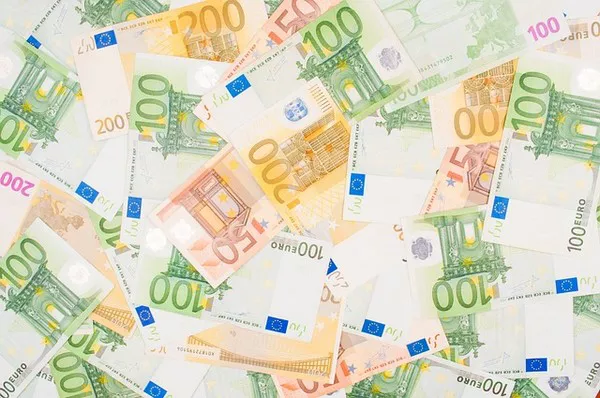Confirmation of Currency:
Belgium, a country nestled in the heart of Europe, indeed utilizes the Euro as its official currency. This adoption came about as a result of Belgium being a founding member of the Eurozone, a significant economic and monetary union comprised of 19 European Union (EU) member states. Since the Euro’s introduction, it has become an integral part of Belgium’s economic landscape.
History of the Euro in Belgium:
Belgium’s transition to the Euro was a pivotal moment in its economic history. Prior to the Euro, Belgium’s official currency was the Belgian Franc (BEF). However, with the signing of the Maastricht Treaty in 1992, Belgium, alongside other EU member states, committed to establishing a common currency. This paved the way for the introduction of the Euro on January 1, 1999, in electronic form, and subsequently in physical form on January 1, 2002.
The adoption of the Euro brought several benefits to Belgium, including enhanced economic integration with other Eurozone members, reduced transaction costs for businesses and consumers, and increased price transparency across borders. Additionally, it eliminated exchange rate fluctuations, providing stability for both domestic and international trade.
Eurozone Membership:
Belgium played a crucial role as a founding member of the Eurozone, contributing to the development and implementation of the Euro as a common currency. Alongside Germany, France, Italy, Luxembourg, and the Netherlands, Belgium was instrumental in shaping the policies and criteria necessary for Eurozone membership.
As a member of the Eurozone, Belgium participates in the formulation of monetary policies governed by the European Central Bank (ECB). This involvement ensures that Belgium’s economic interests are represented at the European level, contributing to the stability and prosperity of the Eurozone as a whole.
Currency Denominations:
The Euro is divided into various denominations, including coins and banknotes. In Belgium, the Euro coins come in eight denominations: 1, 2, 5, 10, 20, and 50 cents, as well as 1 and 2 Euros. These coins feature common European motifs on one side and country-specific designs on the other, reflecting Belgium’s rich cultural heritage.
Similarly, Euro banknotes come in seven denominations: 5, 10, 20, 50, 100, 200, and 500 Euros. Each banknote features iconic European architectural styles on one side and bridges from different periods in European history on the other. These banknotes are widely accepted and circulated throughout Belgium, facilitating everyday transactions for residents and visitors alike.
Using Euros in Belgium:
Using Euros in Belgium is convenient and straightforward, given the widespread acceptance of the currency. Visitors can exchange their currency for Euros at banks, exchange offices, or ATMs located throughout the country. Banks typically offer competitive exchange rates, although it’s advisable to compare rates before making a transaction.
Additionally, most establishments in Belgium accept credit and debit cards, including Visa and Mastercard. Contactless payments are increasingly common, especially in urban areas and tourist destinations. However, it’s advisable to carry some cash for smaller transactions, as not all merchants accept cards for low-value purchases.
Economic Impact:
The adoption of the Euro has had a profound impact on Belgium’s economy, contributing to its stability and growth. By eliminating currency exchange costs and reducing exchange rate volatility, the Euro has facilitated trade and investment within the Eurozone, benefiting Belgian businesses and consumers alike.
Moreover, Belgium’s participation in the Eurozone has enabled it to leverage the collective strength of the Euro as a global reserve currency. This has enhanced Belgium’s credibility and attractiveness to foreign investors, bolstering its position in the global economy.
Travel Tips:
For travelers visiting Belgium, it’s essential to plan their budget and payment methods in advance to optimize their experience. Here are some tips:
Currency Exchange: Exchange currency at banks or reputable exchange offices to avoid excessive fees and unfavorable rates. Alternatively, withdraw Euros from ATMs using a debit card linked to a checking account to obtain competitive exchange rates.
Credit and Debit Cards: Carry a credit or debit card for convenience and security. Ensure that your card is widely accepted and notify your bank of your travel plans to avoid any issues with international transactions.
Budgeting: Plan your expenses in Euros to avoid unexpected currency conversion fees. Research the cost of accommodation, dining, transportation, and activities to create a realistic budget for your trip.
Emergency Cash: Keep a small amount of cash on hand for emergencies or situations where cards may not be accepted, such as in rural areas or at small businesses.
Currency Conversion Apps: Download currency conversion apps to stay updated on exchange rates and accurately calculate prices in your home currency.
By following these tips, travelers can navigate Belgium with ease and make the most of their Euro-based transactions.
Visual Representation:
Including images of Euro notes and coins throughout the article can enhance user engagement and provide visual context for readers. Images showcasing the various denominations of Euro coins and banknotes, as well as their unique designs, can complement the textual content and reinforce key concepts related to Belgium’s currency and its usage within the Eurozone.
In conclusion, Belgium’s adoption of the Euro has been a transformative journey, shaping its economic landscape and fostering integration within the Eurozone. As a founding member of the Eurozone, Belgium continues to play a vital role in maintaining the stability and prosperity of the common currency. Whether for residents or travelers, the Euro remains a symbol of unity and cooperation across European borders, facilitating seamless transactions and enriching cultural exchanges.


